STORY
Making a Difference in Maternal and Child Health in Kenya
Matibabu Foundation is dedicated to transforming the lives of rural communities through an impactful suite of essential services.
by Kari Brayman
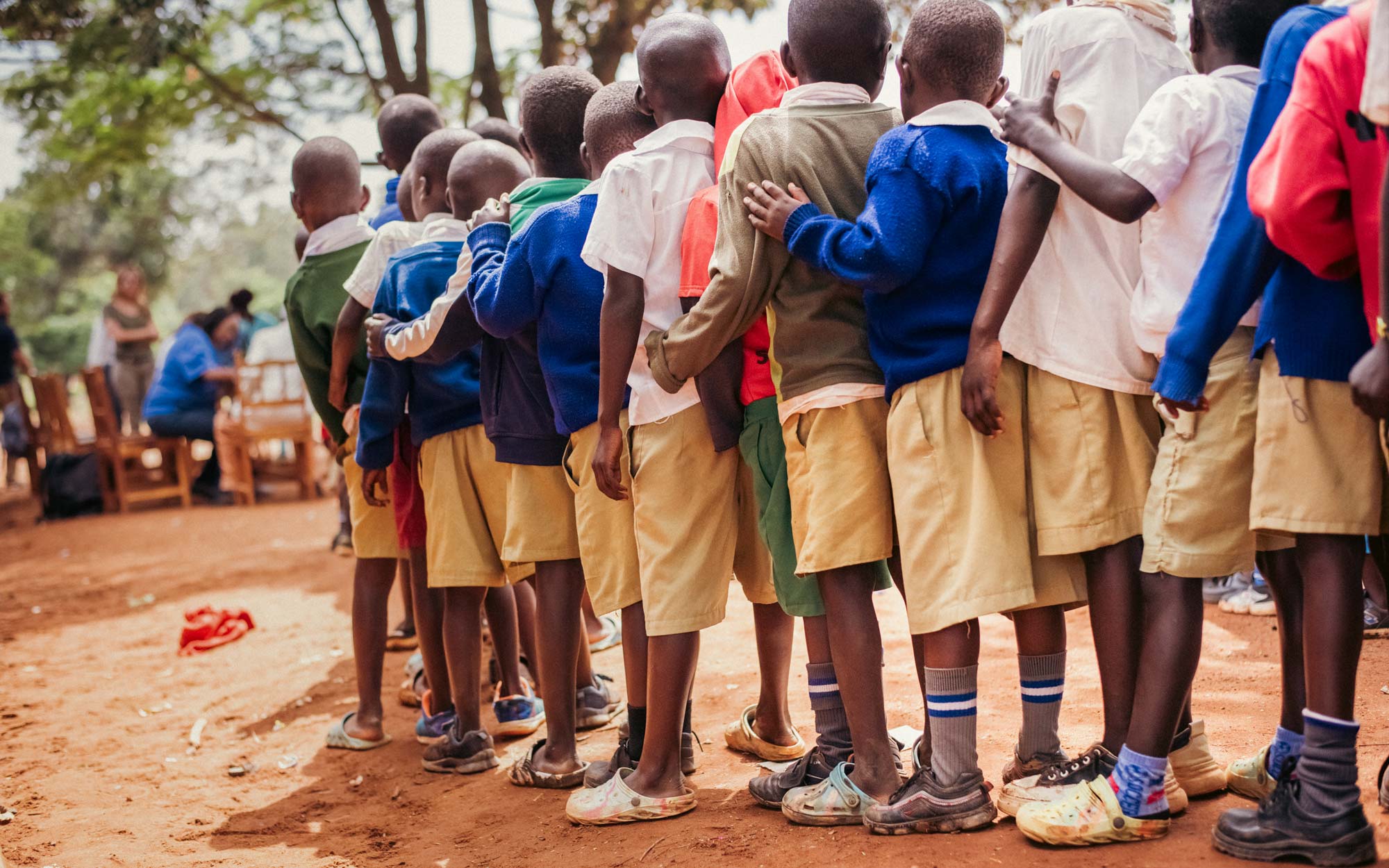
Vitamin Angels provides proven nutrition solutions and essential support to more than 1,200 program partners, including governments across 65 countries, to enhance access to health and nutrition services for pregnant women, infants, and children in underserved communities.
Our program partners have earned the trust and respect of their communities by seeking to understand and innovatively meet their needs. Read on to learn how one of our partners is making a remarkable impact on health, nutrition, and economic prosperity for women in rural Kenya.
When Daniel Ogola was seven years old, he lost his younger brother to a preventable case of malaria. Seeking a way to help others, he used the money he received from family and friends to buy acetaminophen tablets and offered them to anyone who felt unwell. Even at a young age, he understood the importance of accessible and affordable healthcare.
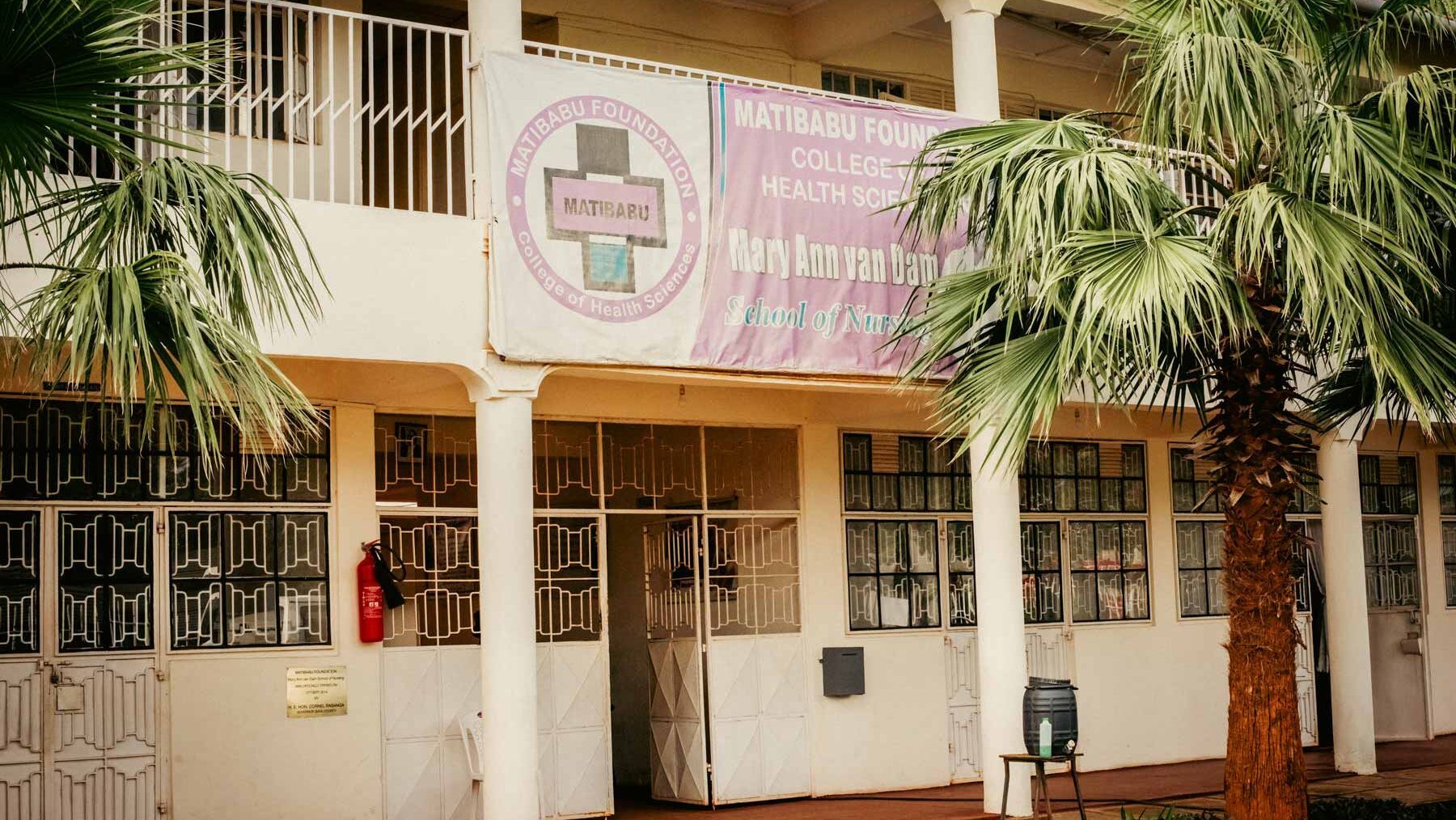
The Matibabu Foundation in Kenya includes a hospital, satellite clinics, pharmacies, and a nursing college.
During his teens to early twenties, Dan ran a community-based organization in Nairobi. The experience inspired him to help his own rural community. In 2004, along with a group of medical professionals and rural healthcare advocates, he founded the Matibabu Foundation. Matibabu Foundation provides family-centered health information and services by working with individuals, the community, and the government to improve overall health results. Based in Siaya County in Western Kenya, the non-profit organization provides medical services to over 200,000 people through an accredited hospital, satellite clinics and pharmacies, and a nursing college.
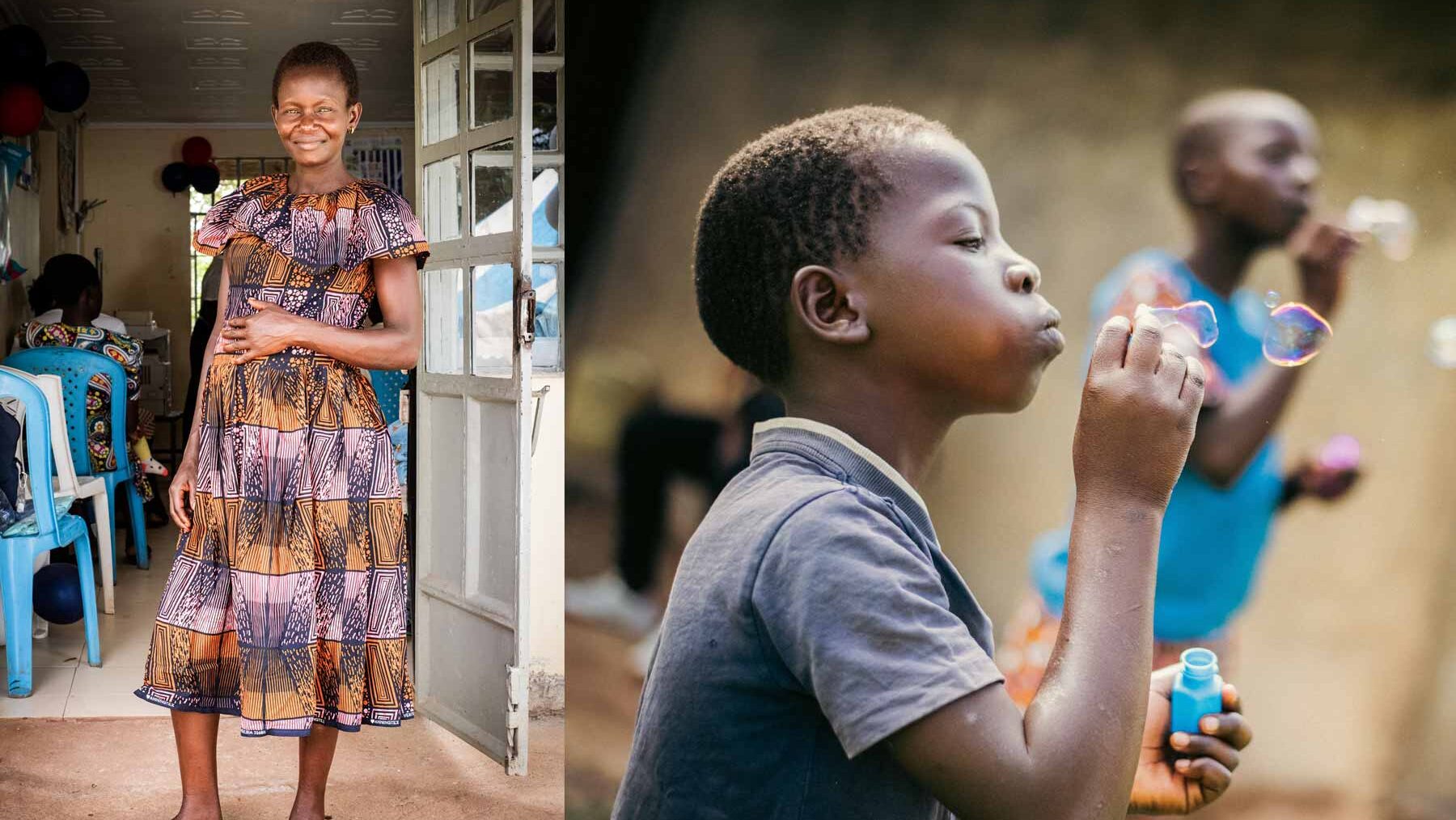
Millicent visits a healthcare facility run by the Matibabu Foundation and kids blow bubbles outside their home in Kenya.
One of the ways that the Matibabu Foundation is working to reduce malnutrition in rural Kenya is through the mass distribution of vitamin A and Albendazole for deworming to children under age five and prenatal vitamins and minerals for pregnant women, nutrition interventions donated by Vitamin Angels. Through its Nutricare Program, the organization empowers individuals to achieve optimal health by offering personalized consultations, meal plans, and ongoing support from experienced nutritionists and health professionals. In collaboration with the Days for Girls Foundation, Matibabu Foundation offers sexual and reproductive healthcare and information to adolescent girls in Siaya County. They have reached 1,000 girls in 100 schools with sexual and reproductive health education.
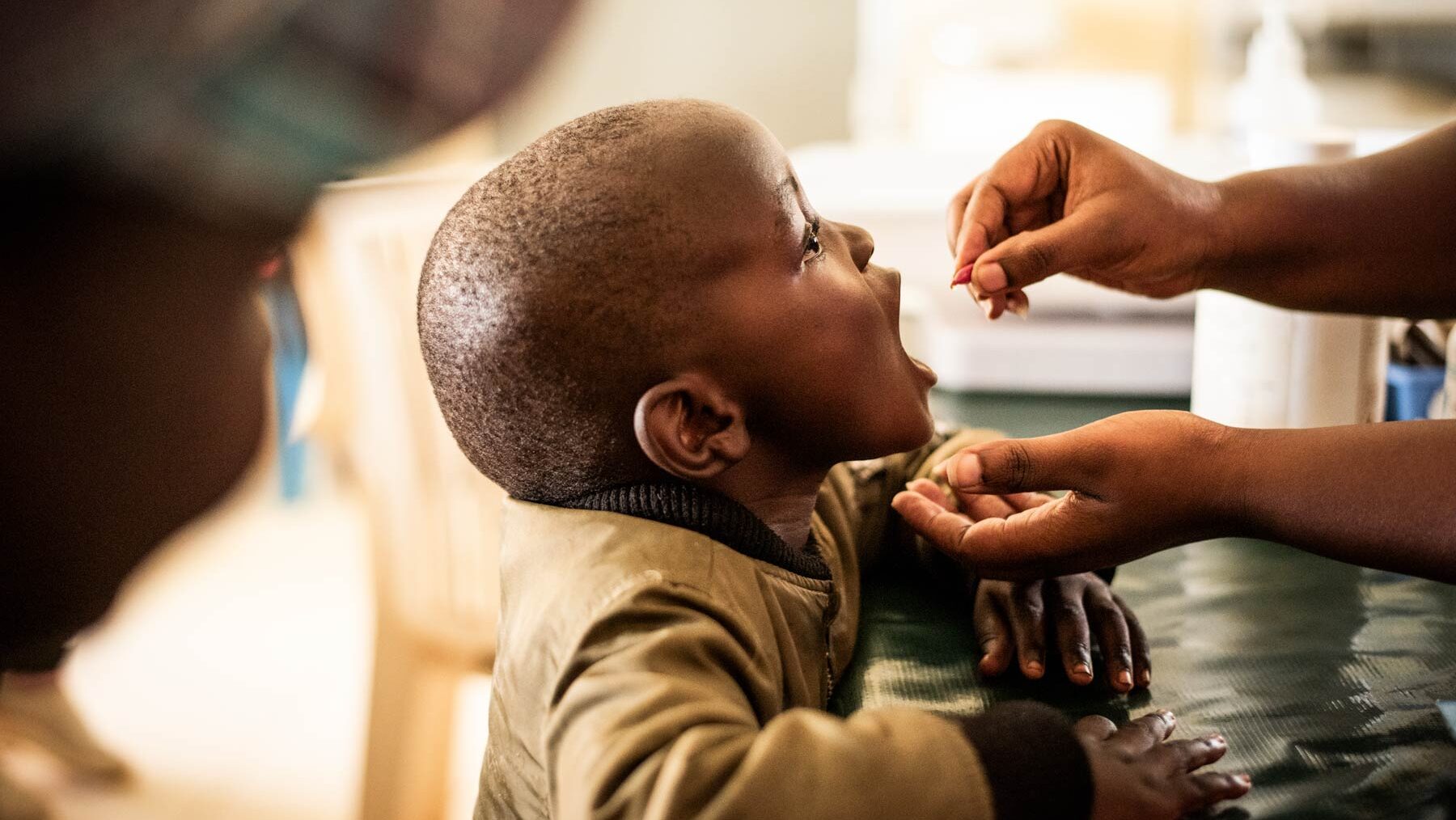
Greyson receives vitamin A at a distribution at the Matibabu Foundation in Kenya.
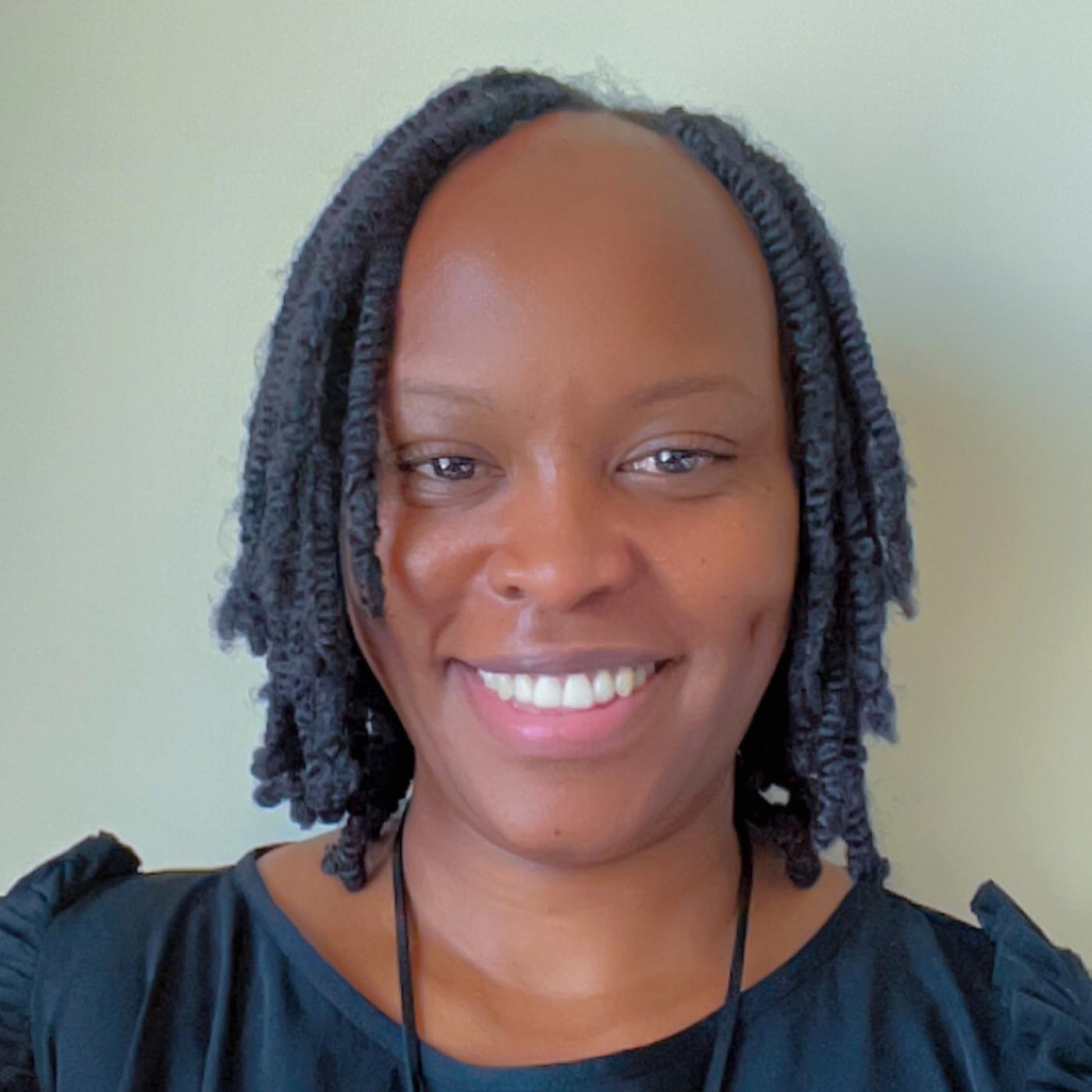
The 2022 Demographic Health Survey showed that 66% of pregnant women attend four or more ANC visits, 41.6% of pregnant women are anemic, 60% of children 0-5 months are exclusively breastfed, routine Vitamin A Supplementation (VAS) coverage is still suboptimal at less than 20%. VAS acceleration activities attributed to a coverage of more than 80% from 2021-2024. This data highlights the need for increased efforts to meet the 2030 SDG and Kenya Vision targets.”
JoyGrace Muthoni, Africa Region Technical Advisor, Vitamin Angels
After helping launch the Matibabu Foundation, Dan recognized a significant barrier for women accessing care: the lack of secure transportation. Women were vulnerable to crime during travel to their medical appointments, but obtaining that care before, during, and after delivery was essential to the health of mom and baby.
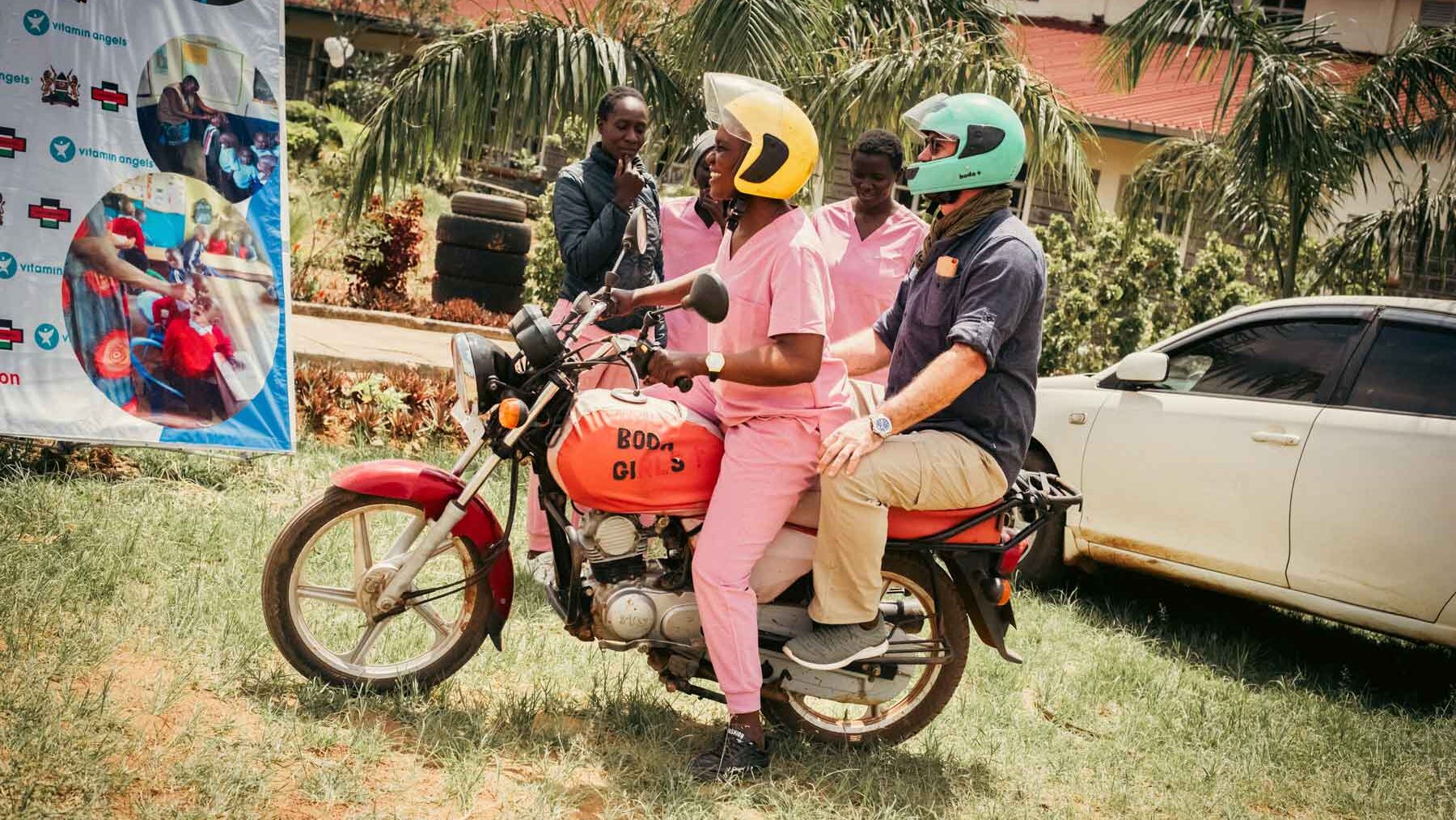
A Boda Girl gives a ride.
The Boda Girls Are Born
Dan established the Boda Girls with the Tiba Foundation to tackle transportation and healthcare challenges in rural areas of Kenya. Bodas (motorcycles) are how most people get around. Women often depend on bodas to take them to medical facilities, particularly for prenatal and antenatal care. However, most boda drivers are men, and unfortunately, some male drivers exploit female passengers, leading to sexual assault. Rural Kenyan women face numerous challenges due to unsafe transportation, including threats to personal safety, limited educational opportunities (with the average Kenyan woman’s education ending at 8th grade), maternal health risks, and financial stress.
71% of Kenyans live in rural areas often far from schools and hospitals. Due to limited resources, many rural women can’t afford the cost of transport to access health services ($1), and girls may be vulnerable riding with male drivers.1
Boda Girls creates a positive impact for the women in the driver’s seat and for those traveling on the back of the bodas, too! Boda Girls is a social enterprise that empowers women by training them to run their own motorcycle transport businesses. The cohort-based leadership program fosters female entrepreneurship while offering free and safe rides to women in rural communities. The program aligns with the Kenyan Ministry of Health’s Linda Moma and Rapid Response initiatives.
The comprehensive leadership curriculum spans two years and covers topics such as self-defense, reproductive education, and gender-based violence training. It also focuses on developing the drivers’ entrepreneurial skills, including computer and marketing skills, financial literacy, and interpersonal skills. The Boda Girls offer more than just transportation; they serve as trusted advisors to the women they transport, often providing important information not available elsewhere. Being from the local communities, the Boda Girls can help identify pregnant women in need of assistance. They actively engage with them, offering their direct cell phone numbers for emergency calls and scheduling regular check-ups and antenatal care. They even distribute menstrual kits to passengers.
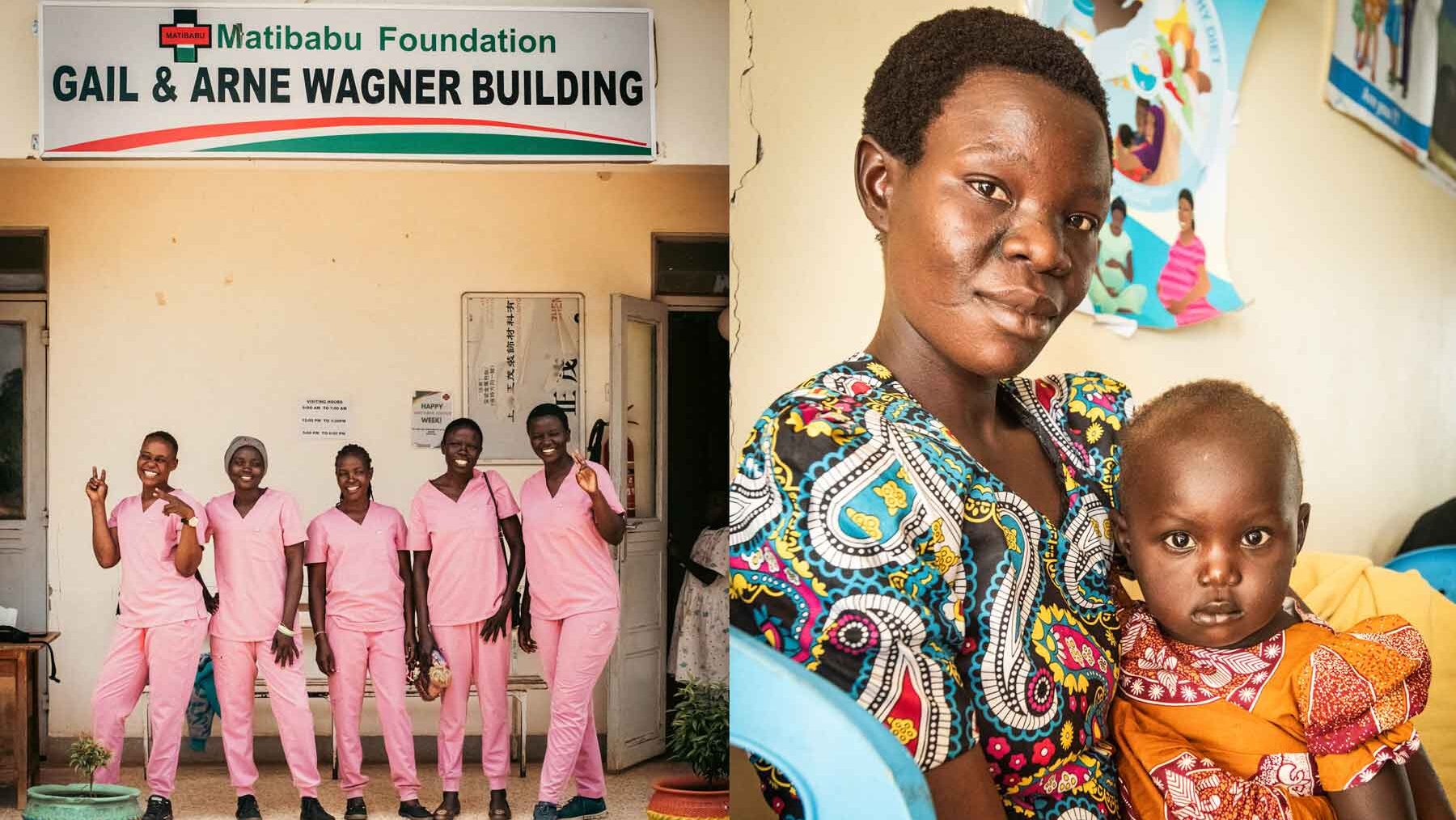
Boda Girls at the Matibabu Foundation and Jane and her daughter await health services in Kenya.
Currently, there are nine Boda Girls serving the entire Ugenya sub-county, which has a population of 150,000 people. And, their influence has been profound. In just their first year, Matibabu Hospital saw a significant increase in attendance at maternal health clinics and hospital births and a 2000% increase in prenatal ultrasounds. The Boda Girls are inspiring generations of women, empowering girls with education and safe transportation, and improving access to healthier futures.
Vitamin Angels has 15 program partners in Kenya, collectively reaching 577,312 mothers with MMS, and 910,250 children with Vitamin A and deworming since 2008. We have also developed partnerships with the Ministry of Health and supported the development of national materials and guidelines.
